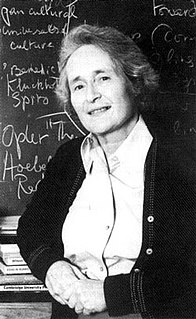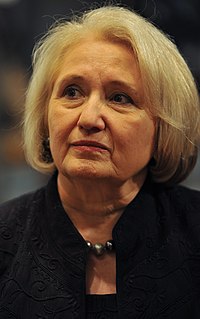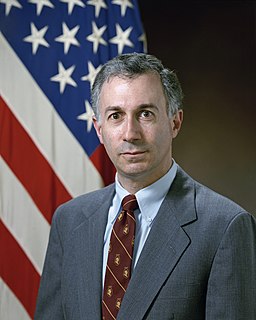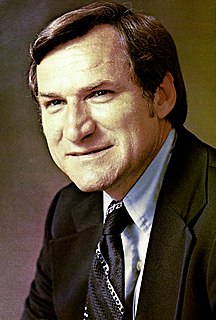A Quote by Mary Parker Follett
Leader and followers are both following the invisible leader-the common purpose.
Related Quotes
Leader and followers are both following the invisible leader - the common purpose. The best executives put this common purpose clearly before their group. While leadership depends on depth of conviction and the power coming therefrom there must also be the ability to share that conviction with others, the ability to make purpose articulate. And then that common purpose becomes the leader.
Often, in a given project team or network, one sees leadership roles shifting among various members at various times. Attempts to fit these into traditional views of "leader" and "follower" don't quite work. It's more like Twitter: the "leader" has "followers" - but the "followers" are empowered to alter the relationship unilaterally, and the "leader" must continually earn the consent of the "followers."
Moral authority is another way to define servant leadership because it represents a reciprocal choice between leader and follower. If the leader is principle centered, he or she will develop moral authority. If the follower is principle centered, he or she will follow the leader. In this sense, both leaders and followers are followers. Why? They follow truth. They follow natural law. They follow principles. They follow a common, agreed-upon vision. They share values. They grow to trust one another.
Trust is perhaps the most critical single building block underlying effectiveness. Without trust leaders do not have followers. Without trust, leaders are impotent despite great rhetoric or splendid ideas. Trust rests on the belief among followers that the leader is transparent: What you see is what there is. Trust means followers believe there is no duplicity; no manipulation just to satisfy the leader's ego. Very simply: The effective leader is transparent; that's why that person is trusted.
In order to be a leader a man must have followers. And to have followers, a man must have their confidence. Hence, the supreme quality for a leader is unquestionably integrity. Without it, no real success is possible, no matter whether it is on a section gang, a football field, in an army, or in an office. If a man's associates find him guilty of being phony, if they find that he lacks forthright integrity, he will fail. His teachings and actions must square with each other. The first great need, therefore, is integrity and high purpose.
I believe to be a leader is to enable others to embrace a vision, initiative or assignment in a way that they feel a sense of purpose, ownership, personal engagement, and common cause. I was very affected as a child by my father's positive example as a civic leader who inspired others to share his commitment to improving our community.





























